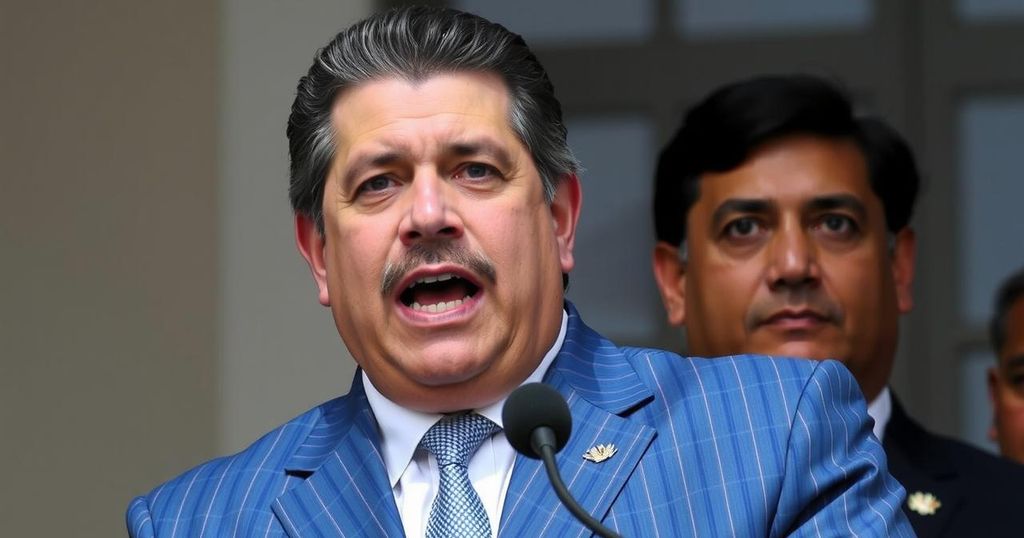Nicolás Maduro was sworn in for another presidential term on Friday, despite credible claims that he lost the recent election to his opponent, Edmundo González. Armed forces secured the inauguration while protests erupted against the government, which has faced international sanctions for undermining democracy. Maduro’s regime continues to suppress dissent as tensions between government and opposition escalate.
Nicolás Maduro was sworn in for a third six-year term as the President of Venezuela, despite substantial evidence suggesting that his opponent, Edmundo González, actually won the recent election. The ceremony took place at Venezuela’s legislative palace, heavily secured by police and military forces, while Maduro delivered a speech claiming victory over both internal opponents and external adversaries, particularly the United States.
The opposition collected and published vote tallies from over 80% of the electronic voting machines, indicating that González secured double the number of votes compared to Maduro. Election observers from the Carter Center endorsed these tallies, affirming their legitimacy. In a response to the election’s orchestrations, the European Union imposed sanctions on 15 Venezuelan officials, alleging they jeopardized democratic processes within the country.
Protests against Maduro erupted in the capital, as dissent against his regime intensified. Notably, María Corina Machado, a significant opposition figure, faced harassment and detention by security forces during anti-Maduro demonstrations. Her supporters decried these actions, with international figures, including incoming U.S. President Donald Trump, calling for her protection and advocating for the dissenters.
The electoral authorities, aligned with Maduro’s regime, announced his victory without providing detailed vote counts, provoking widespread denunciations over the election’s transparency. Nonetheless, Maduro’s inauguration saw support from gathered crowds, with supporters expressing joy at his continuation in power amid ongoing tensions between the government and opposition factions. The situation around González remains precarious as government officials threaten his arrest in Venezuela while familial connections seem to endanger his relatives if he attempts to return.
The political climate in Venezuela has been turbulent, marked by allegations of election fraud and increasing repression under Nicolás Maduro’s presidency. After a contested election process, the opposition has asserted that the ruling party manipulated results to favor Maduro, a claim that has led to widespread unrest. International observers and foreign governments have criticized these actions, demanding accountability and transparency in electoral practices. The tensions between the Maduro administration and opposition leaders, particularly concerning González, underline the ongoing struggle for power and the dire human rights situation in Venezuela.
In conclusion, Nicolás Maduro’s inauguration for a third term as President of Venezuela occurs amidst significant controversy over the legitimacy of the recent election results. Despite protests and international sanctions, Maduro remains in power, bolstered by loyalist support. The opposition continues to challenge the regime, highlighting the significant risks involved for its leaders and the ongoing struggle for democracy in Venezuela.
Original Source: www.newsday.com






